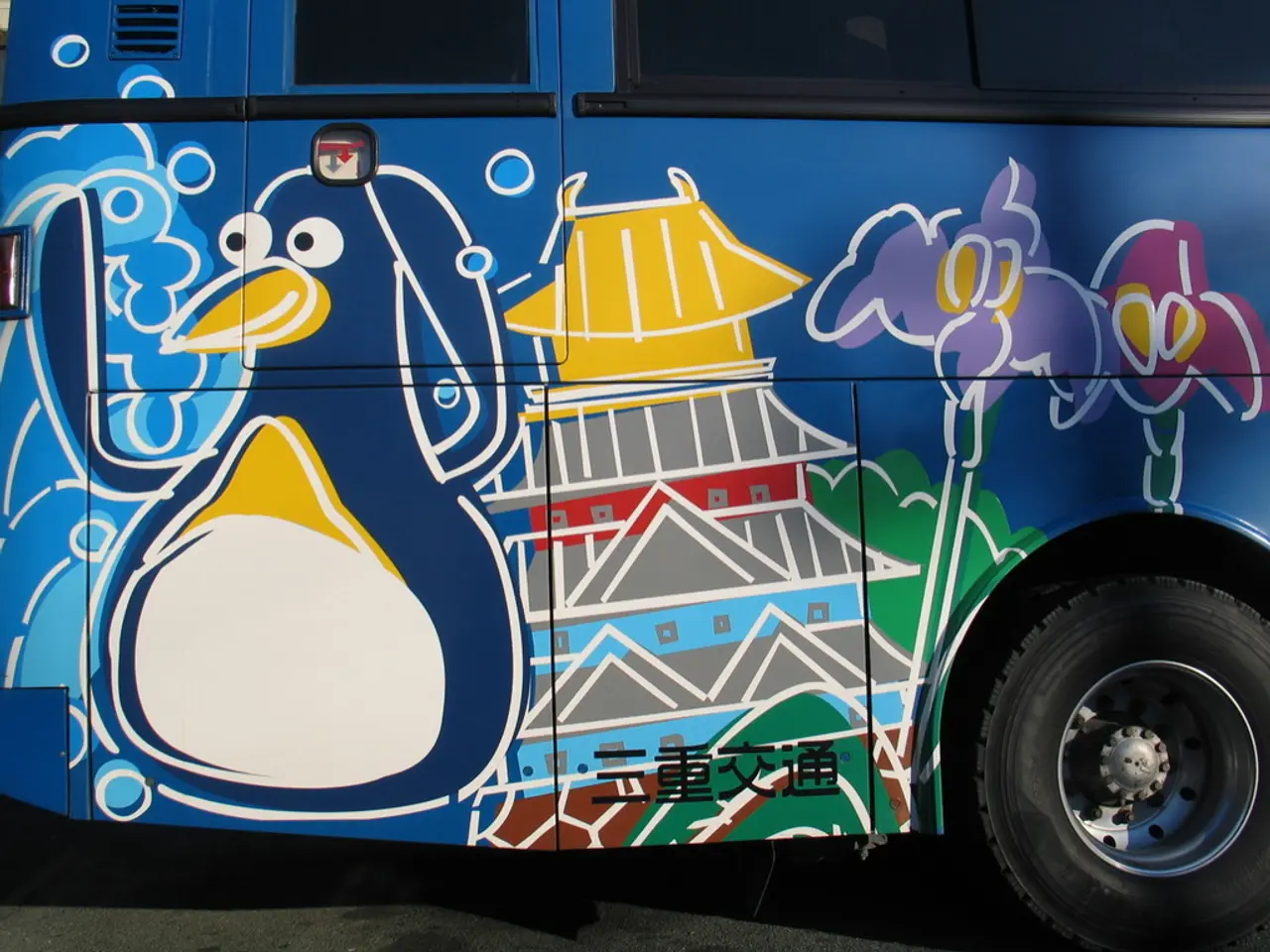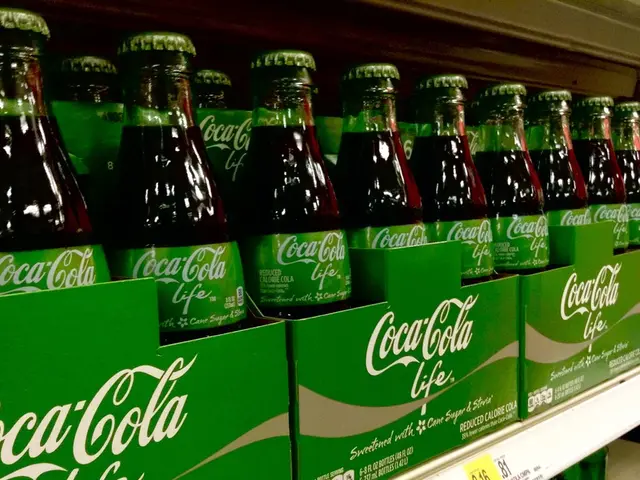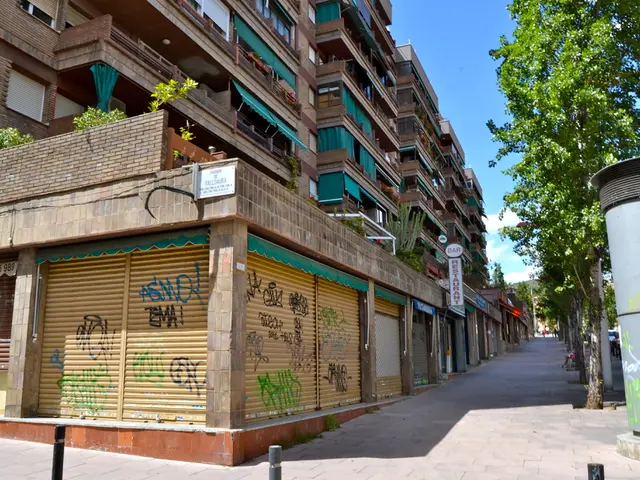Progress in public transportation: advancements and enhancements in Saudi Arabia's bus system
In the Kingdom of Saudi Arabia, a new era for bus networks is unfolding, as the country focuses on developing its public transportation system with a blend of clean energy solutions and smart technology. This shift towards sustainability and technology is a significant step towards reducing carbon emissions, minimizing environmental impacts, and creating a more integrated, efficient, and connected transport system.
The Kingdom's commitment to technological advancements is evident in its attention to future transportation systems and smart transportation systems. It is at the forefront of adopting clean energy solutions in public transportation, making it a leader in regional technological advancements. The integration of electric buses is a key component of this effort, and the Kingdom is working diligently to develop its bus network, including the integration of these eco-friendly vehicles.
The introduction of electric buses is aligned with Saudi Arabia’s commitment to reducing urban congestion and carbon emissions while enhancing public transport efficiency. The Kingdom's investment in future transport technologies, such as autonomous buses, is part of a broader national strategy to have 25% of all goods transport vehicles fully autonomous by 2030.
The integration of smart transport systems, utilizing sensors, data analysis, and real-time communication, enhances the overall efficiency of the bus network. This results in shorter wait times, more efficient routes, and a seamless, connected travel experience. Smart transport systems also provide real-time information to passengers for effective route planning and predictive maintenance.
The harmonious union of sustainability and technology characterizes the future of mobility in Saudi Arabia, promising an efficient and environmentally responsible public transport system. The speed and efficiency of land and railway transportation in the Kingdom are being increased through these developments, reshaping the future of transportation in the Kingdom.
Saudi Arabia's transportation developments are aimed at meeting the diverse needs of citizens and visitors. The Kingdom is working on creating an integrated and connected transportation system, with initiatives like the Riyadh Metro and smart city projects such as NEOM and The Line. The integration of 5G infrastructure in these projects facilitates real-time data management and AI-powered transport systems, supporting seamless, energy-efficient, and automated transit solutions.
Future plans emphasize scaling up autonomous mobility solutions across Saudi Arabia’s major cities and logistics networks, aligning with goals to transform the Kingdom into a global logistics hub imbued with smart, sustainable technologies. The government's focus on electric vehicles, smart grid integration, AI-powered mobility, and fivefold growth in digital infrastructure investments signals a comprehensive push toward sustainable, next-generation transport systems.
The shift to electric buses in the Kingdom's bus network contributes to the kingdom's goal of reducing its carbon footprint and addressing global climate change. This forward-thinking approach to mobility in Saudi Arabia is a testament to the country's commitment to a sustainable future and its role as a global leader in smart, sustainable transportation.
[1] Al-Ghamdi, A. (2021). Saudi Arabia's Vision 2030: A New Era for Mobility. Arab News. [2] Al-Jadid, M. (2021). Saudi Arabia's Autonomous Vehicle Pilot Projects: A Step Towards a Sustainable Future. Gulf News. [3] Al-Otaibi, A. (2021). NEOM and The Line: Saudi Arabia's Smart City Projects. Forbes Middle East. [4] Al-Otaibi, A. (2021). Riyadh Metro: A Game Changer for Public Transport in Saudi Arabia. Arab News. [5] Al-Ghamdi, A. (2021). Saudi Arabia's Digital Infrastructure Investments: A Pathway to a Sustainable Future. Gulf News.
Read also:
- Rapid Construction of Rajasthan's 435 Megawatt Solar Power Plant in Eight Months Reduces Carbon Dioxide Emissions by Over 700,000 Tons
- Plastic apparel shipments from the EU to Kenya reach 37 million units, revels fresh data report
- "New Maxxi-charge storage proves effective in replacing entire rooftop systems"
- Businesses' Pursuit of Sustainability Through Consumer Data and Five Key Strategies







